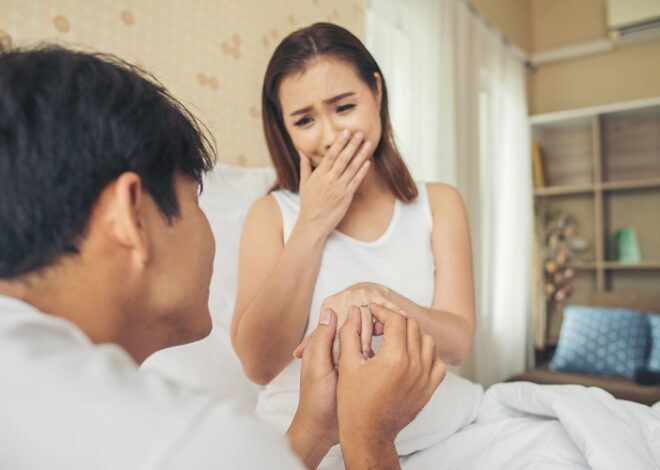Living through Your First Herpes outbreak can feel overwhelming, confusing, and even frightening. Many people experience a rush of emotions when they notice the first signs of herpes, shock, embarrassment, or even shame. However, herpes is far more common than most people realize, and learning how to recognize, treat, and cope with your first outbreak is the first step toward taking back control of your health and confidence.
In this guide, we’ll break down what to expect during your first herpes outbreak, what symptoms you might face, how to manage discomfort, and most importantly, how to cope emotionally with this new diagnosis. With the right knowledge, self-care strategies, and support, you can move forward and continue to live a healthy, fulfilling life.
Understanding Herpes: The Basics You Need to Know
Before diving into what your first herpes outbreak might look like, it’s helpful to understand what herpes actually is. Herpes is a viral infection caused by the herpes simplex virus (HSV). There are two types:
- HSV-1, which most commonly causes oral herpes (cold sores).
- HSV-2, which is usually associated with genital herpes, though both types can appear in either area.
Both types are highly contagious, often transmitted through skin-to-skin contact, kissing, or sexual activity. Millions of people worldwide carry the virus, yet the stigma surrounding herpes keeps many silent.
Knowing these facts can help humanize the condition. You are not alone—herpes is one of the most common viral infections globally. It’s important to remember that having herpes does not define your worth, your relationships, or your future. It’s simply something you’ll learn to manage, much like other chronic conditions.
Recognizing the First Signs of a Herpes Outbreak
Your first herpes outbreak is often the most intense, both physically and emotionally. For many, the outbreak begins with a prodrome phase—a period when you feel symptoms before blisters appear.
You may notice:
- Tingling or itching around the affected area
- A burning sensation in the skin
- General flu-like symptoms such as fatigue, headache, or swollen lymph nodes
These signs are your body’s way of warning you that the virus is active. Within a few days, small red bumps or blisters will form. These may break open and turn into painful sores before eventually crusting over and healing.
It’s important to know that symptoms vary from person to person. Some experience severe pain and discomfort, while others may have very mild signs that they mistake for a rash or ingrown hair. Being able to recognize your own body’s signals will help you manage future outbreaks more effectively.
How Long Does the First Herpes Outbreak Last?
One of the biggest questions people have is: “How long will this outbreak last?” The truth is, the first outbreak usually lasts longer than future ones. For most, the initial episode can last 2 to 4 weeks from start to finish.
Here’s a general timeline:
- Days 1–2: Tingling, itching, and flu-like symptoms may begin.
- Days 3–7: Blisters form and may become painful.
- Days 7–14: Blisters burst, turning into open sores.
- Days 14–28: Sores crust over and heal completely.
After your first outbreak, future episodes are usually shorter and less severe. With time, your body builds a level of immunity that makes recurrences easier to manage.
Medical Treatment Options for Herpes Outbreaks
While there is currently no cure for herpes, medical treatments can significantly reduce symptoms and help speed up healing. Your doctor may prescribe:
- Antiviral medications such as acyclovir, valacyclovir, or famciclovir. These can be taken during an outbreak to shorten its duration or as a daily suppressive therapy to reduce recurrences.
- Topical treatments that soothe discomfort, though they don’t speed healing.
- Over-the-counter pain relief like ibuprofen or acetaminophen to manage fever, aches, or discomfort.
If you are experiencing your first herpes outbreak, it’s recommended to see a healthcare provider. They can confirm your diagnosis through a swab test and guide you on the best treatment plan. Getting professional advice not only helps physically but also provides reassurance during an emotionally stressful time.
Home Remedies and Self-Care Tips
Alongside medical treatment, there are many practical self-care strategies that can make your first herpes outbreak more bearable. Small changes in daily habits can provide significant relief:
- Keep the area clean and dry. Gently wash with mild soap and warm water.
- Avoid tight clothing. Loose cotton underwear and breathable fabrics reduce irritation.
- Use a cold compress. Applying a cool cloth to the area can ease pain and swelling.
- Take warm baths. A short soak in a salt or baking soda bath can calm irritation.
- Boost your immune system. Eat a balanced diet, stay hydrated, and get plenty of sleep.
Self-care is not just about physical comfort—it’s also about nurturing yourself emotionally. Give yourself permission to rest, take breaks, and seek comfort in activities that bring peace and relaxation.
Coping with the Emotional Impact of a First Herpes Outbreak
Perhaps the hardest part of a first herpes outbreak is the emotional toll it takes. Many people feel shame, fear, or anger when they first receive the diagnosis. These feelings are natural, but they do not define your future.
It’s important to remember:
- You are not dirty or broken. Herpes is simply a virus, not a reflection of who you are.
- You are not alone. Millions of people live with herpes, many of them in healthy relationships.
- You can still have love, intimacy, and a fulfilling life.
Talking openly about your feelings—whether with a close friend, therapist, or support group—can reduce the sense of isolation. Journaling or practicing mindfulness can also help you process emotions in a healthy way.
Reducing the Risk of Spreading Herpes
A key part of coping with herpes is learning how to protect others. While herpes is contagious, there are effective ways to reduce transmission:
- Use condoms or dental dams. These reduce risk but don’t eliminate it completely.
- Avoid sexual activity during outbreaks. The virus is most contagious when sores are present.
- Communicate openly. Honest conversations with partners build trust and reduce stigma.
- Consider suppressive therapy. Daily antiviral medication can lower the risk of transmission.
Taking precautions doesn’t just protect others—it also helps you feel more confident and responsible in your relationships.
Living with Herpes Long-Term
Your first outbreak may feel like the end of the world, but it’s really the beginning of a new chapter—one where you learn to live with herpes as just another part of your life. Over time, you’ll notice that outbreaks become less frequent and easier to manage.
Many people with herpes go months or even years without another outbreak. Others may have occasional recurrences, often triggered by stress, fatigue, or illness. Identifying your own triggers and learning to manage them can help you stay healthier and outbreak-free longer.
Living with herpes means practicing good self-care, being open with partners, and remembering that your diagnosis does not limit your happiness. With time, managing herpes becomes just another routine—like taking vitamins or caring for your skin.
Finding Support and Building Confidence
Support makes all the difference when coping with a herpes diagnosis. Whether it’s through online herpes support groups, local communities, or counseling, connecting with others who understand your journey can ease feelings of isolation.
Confidence also grows with knowledge. The more you understand about herpes—how it works, how to manage it, and how to live fully despite it—the less power the stigma holds over you.
You are still the same person you were before your diagnosis. Herpes is just a small part of your story, not the whole book.
Final Thoughts: Moving Forward After Your First Herpes Outbreak
Your First Herpes Outbreak may feel like an emotional storm, but it will pass. Over time, outbreaks will become shorter, milder, and easier to manage. With the right mix of medical treatment, self-care, and emotional support, you can cope with herpes and live a fulfilling life.
The key to coping is education and self-compassion. By understanding what to expect, treatment when needed, and nurturing your emotional well-being, you can move forward with confidence and strength.
Remember, you are not defined by a virus. You are defined by how you choose to live, love, and take care of yourself.



